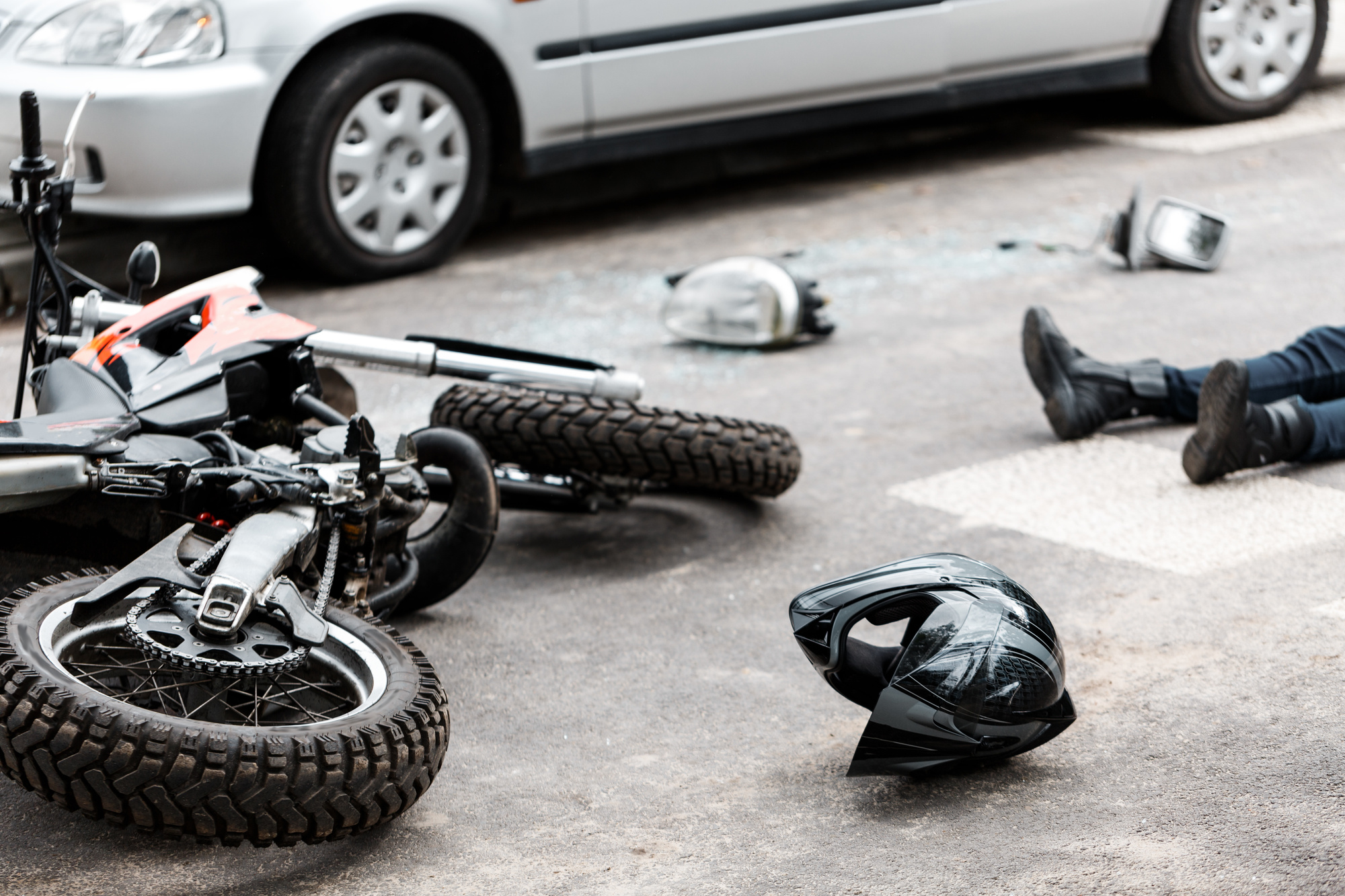What to Do if You’re Involved in a Motorcycle Accident
Riding a motorcycle is exhilarating, especially if you’re in the open country or on a cross-country adventure. Then nothing stands between you and all the awe-inspiring natural wonders along the way.
Yet, the things that make motorcycles attractive, such as their speed and openness, also make them dangerous. Statistics bear this out. For example, per mile traveled in 2015, motorcyclists were 29 times more likely to be killed than car drivers.
If you ride a motorcycle, you know well its risks and rewards. Let’s hope you are never in an accident. But, what if you are? Then what?
Below you’ll learn the steps you need to take if you are involved in a motorcycle accident. We cover everything from taking care of your health to dealing with your insurance company. Let’s go!
Motorcycle Accident Information: Before We Begin
Please note: if you or someone else suffered serious injuries during the motorcycle accident, your first and only priority is getting the victim to the hospital.
Call 911 immediately, and wait for the ambulance to arrive. The other steps listed in this article do not apply when there are life-threatening injuries.
Otherwise, read on.
1. Stay Calm, Assess the Damage, and Make Sure Everyone is Safe
The first thing to do after a motorcycle accident is the hardest. That is, stay calm. Accidents are horrible experiences. But, getting upset won’t help you make sure everyone is okay or perform other necessary post-accident tasks.
Your first task is getting yourself and others out of harm’s way. At the very least, move off the roadway and out of traffic. In addition, if anything is on fire or looks like it might explode, move as far away from it as possible.
Next, check for any serious injuries. You should schedule a doctor’s appointment later whether you think you are hurt or not (more on that below). But for now, you are looking for any life-threatening injuries (see above). This includes the other driver and their passengers.
2. Exchange Personal and Insurance Information
Once you are sure everyone is okay, it’s time to get the other driver’s contact and insurance information. They might be reluctant to give it to you. And while it’s very tempting to just forget about the whole thing and move on, don’t do that.
Without an official accident record, your insurance company might not pay for motorcycle damage. What’s more, health problems often show up well after an accident occurred.
What if you wake up a few days later with serious whiplash? Lacking official documentation, your insurance company might not pay for your medical bills.
Finally, it’s likely the other driver won’t want to exchange personal information if they are doing or have done something illegal. Maybe they are driving without a license, or there’s a warrant out for their arrest.
Whatever the case, issues like these will help you if you need to undertake legal action. For all these reasons, you must get the other driver’s information whether they want to provide it or not.
Here is what you both need to exchange:
- Name
- Address
- Telephone number
- Driver’s license number
- Insurance company
- Policy number
3. Take a Lot of Pictures
Take as many pictures of the accident as you can from as many different angles as possible. Obviously, do not compromise anyone’s safety to get a good shot, but the more photos you have, the better.
Photos of the entire scene are useful, as are close-ups of damage to your motorcycle. If you can, also take pictures that provide location clues.
If your motorcycle hit the back of another car, take a picture of their damage as well. All this documentation helps insurance adjusters as they evaluate each party’s claims.
4. If There Were Any Witnesses, Get Their Contact Information Too
If anyone saw your motorcycle accident, ask them if they’d like to be a witness. If so, get their contact information, and if possible, their description of the accident.
Some people won’t want to be witnesses. That’s okay. Don’t force them.
5. Call the Police
Usually, you’re only required to call the police after an accident when:
- Someone has been hurt
- The accident is blocking traffic
- Damage exceeds a monetary threshold
But the police should be called anyway. First of all, let them decide if they need to attend to your motorcycle accident. If they say it’s not necessary, you can file a report later on at the police station.
But if they do come, they can calm everyone down and file an official report there. When assigning liability, this document is one of the most important pieces of evidence. Without an official report, you might have a hard time proving your case.
Make sure to get the officer’s name and badge number before they leave. Also, no matter what you do, don’t leave the scene of the accident before they arrive.
6. Make An Appointment With Your Doctor
Motorcycle accidents are more serious than ones involving only cars. Because of this, you may find yourself taken to a hospital immediately after your accident. But, let’s say you feel fine and go home.
Call your doctor’s office and make an appointment anyway. Injuries from accidents often show up hours or days later. You’re going to want a written record of any health-related problems caused by the accident.
This way, you will be compensated for all accident-related medical bills. If you don’t see your doctor, the insurance company might claim the injuries aren’t related to the accident and refuse to pay.
7. Call Your Insurance Company
Often, we are told to contact our insurance company as soon as possible after an accident occurs. Of course, you want to quickly get your side of the story on the official record, but, it’s better to wait until you have:
- An official police report
- Your medical report
You may even want to wait until you have a lawyer before calling them (see below). Remember, your insurance company doesn’t want to pay your claim. They will be looking for ways to get out of it.
When you are calm and have all of your information in order, you will be better prepared to deal with them. Also, the insurance company for the other driver is going to be doing the same thing.
Your insurance company might ask you to deal with them directly, but it’s better to let your insurance company handle that as well. Let the professionals fight it out!
8. Hire a Lawyer
Speaking of professionals, there are many lawyers who specialize in motorcycle accident cases. They understand the particular issues in these types of accidents and can help you argue your case.
In general, you should speak to a personal injury lawyer, but some situations absolutely demand one. For example, if you suffered severe injuries during the accident, you’ll want a lawyer. If your claim is denied you may also require professional help.
Check your local listings for lawyer recommendations.
Conclusion: What to Do if You Are Involved in a Motorcycle Accident
Let’s hope you aren’t ever involved in a motorcycle accident. But, now you have everything you need to know if it happens.
As shown above, your immediate concern right after the accident is assuring everyone’s safety. Then you assemble the proper documentation. This helps you get awarded the most compensation.
If you enjoyed this article, why not check out some of our other ones? We have travel ideas for long or short trips, as well as topics like work life and life outside of work. There’s something for everyone!



